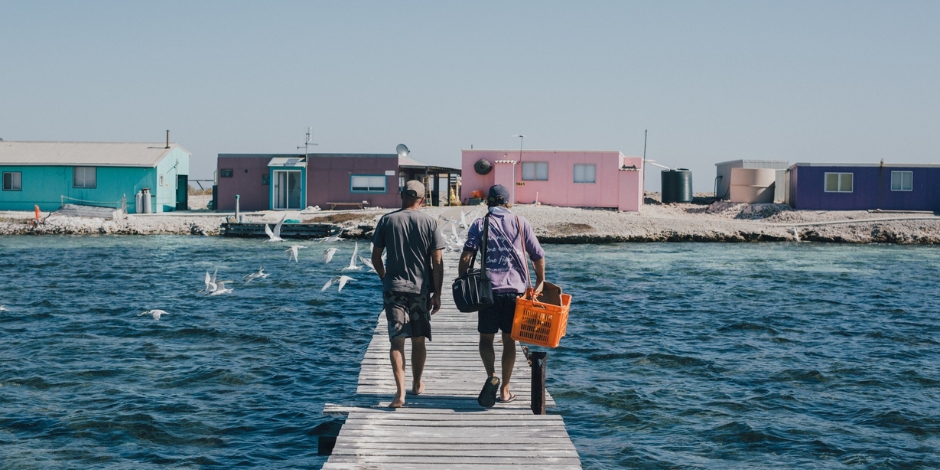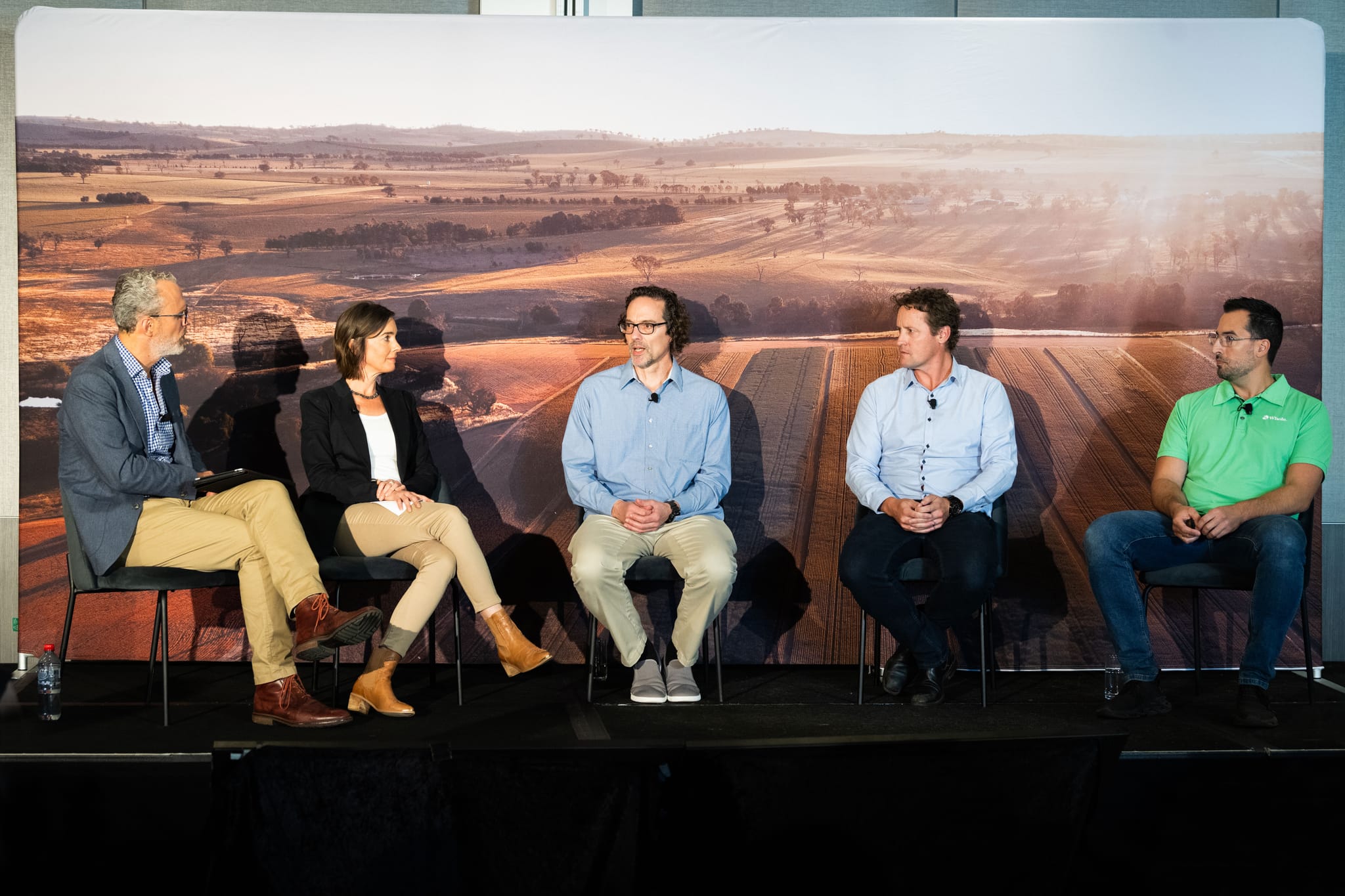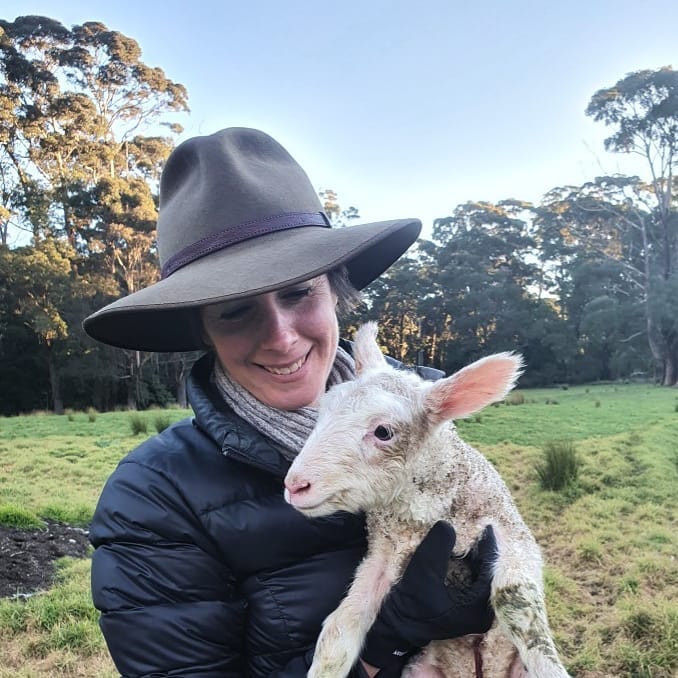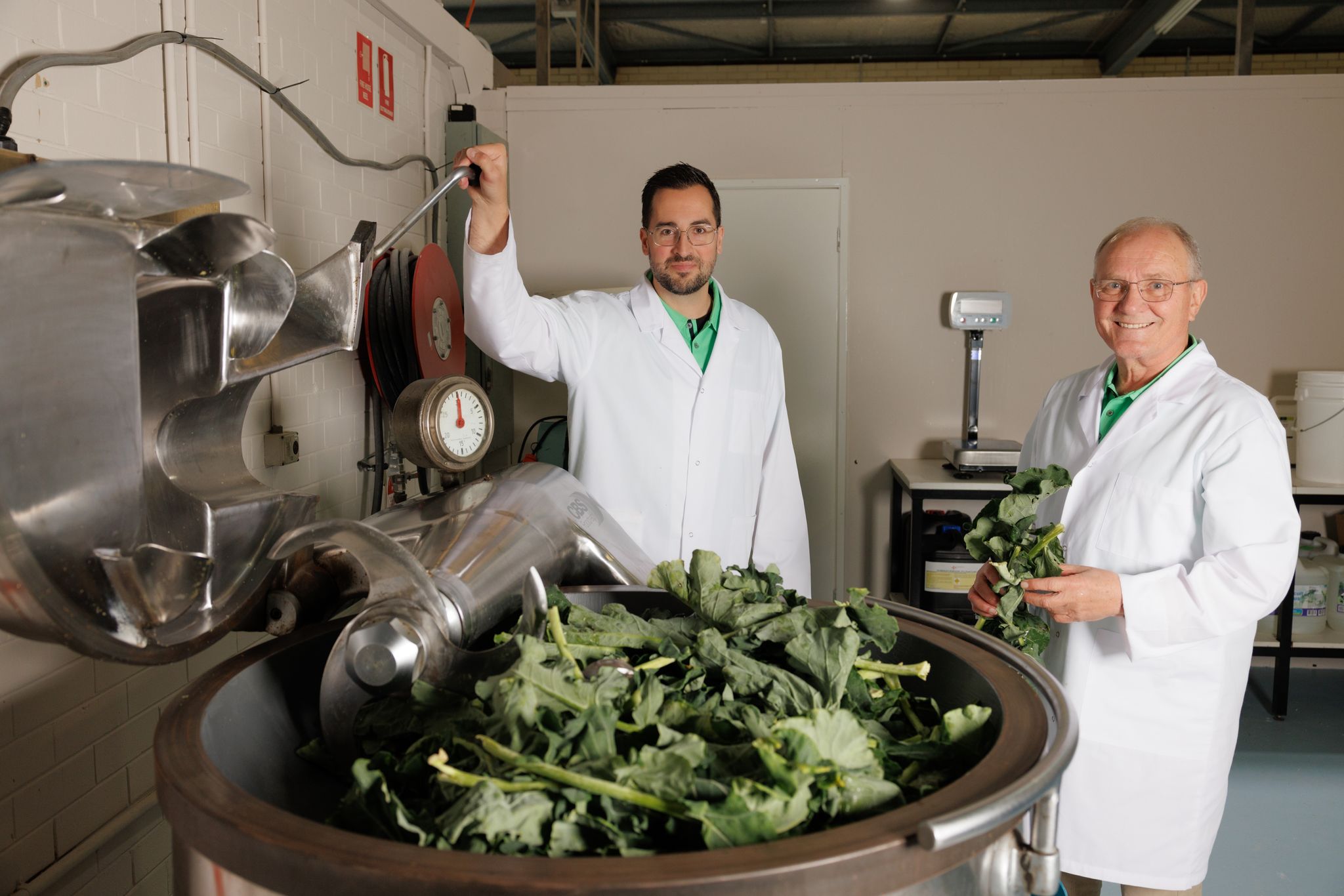Lobsters, artisan cheese and ‘exploding ingredients’: How these food innovators are pivoting to be price-makers not price takers
The price of fresh food and how the profits are shared along the supply chain from producer to check-out is under scrutiny, in both parliamentary and ACCC inquiries, in the media, and around the dinner table.
But how can fresh food producers pivot business models to get better outcomes? And what role does technology play in unlocking opportunities throughout the supply chain?
 Geraldton Fishermen’s Cooperative General Manager - Member Services, Leith Teakle shared how the business had to pivot after the loss of the Chinese market. Image | Geraldton Fishermen's Co-operative
Geraldton Fishermen’s Cooperative General Manager - Member Services, Leith Teakle shared how the business had to pivot after the loss of the Chinese market. Image | Geraldton Fishermen's Co-operative
From retail concentration and a lack of competition through to market disruptions and rising input costs – there’s challenges for Australia’s fresh food supply chains.
Three food industry thought-leaders: a specialty cheesemaker, a man who knows his lobster markets, and an innovator share their perspectives on how those challenges can be overcome.
Pivoting after China live trade closure
When China stopped issuing import permits for Australian live rock lobster in 2020 prices plummeted and fishing boats came to a standstill.
Geraldton Fishermen’s Cooperative General Manager – Member Services, Leith Teakle explained that before the closure 98% of lobsters caught by the co-ops 150 members were exported live to China.
“Before the closure the average price we were paying back to our fishermen was $70 a kilogram and the current price we’re paying the fisherman is around $30 per kilogram.”
Leith said tens of millions of dollars were invested in infrastructure along the Western Australian Coast to support the live trade, but the loss of the Chinese market meant the business had to pivot.

Tim Hunt facilitates discussion between Cressida Cains, Professor Phillip Howard, Leith Teakle and Nick Stamatiou. Image | Rachael Lenehan Photography.
“We had to rebuild our supply chain to handle large volumes of processed product,” he said.
“We’ve now got the ability to react to the market, whatever it might throw at us.”
In developing new markets in Europe Leith points to the value of technology in traceability.
“They certainly have a big appetite to know that their lobsters come from a sustainable fishery, MSC certified fisheries and to have the ability to trace that particular lobster back,” he said.
“Technology for us is in traceability, audit automation and also in value adding.”
With talk that Live Trade to China may soon resume, Leith said there’s temptation to turn back to China’s premiums at the expense of other markets, developed in the last three years.
“Ultimately what will sustain a non-live lobster market is the producer being willing to take a lower price,” he said.
“There will need to be sacrifices made in areas to ensure that we aren’t beholden to one market going forward.
But he believes there’s wider benefits in diversified markets.
“Ultimately, price will dictate where that lobster goes, but I think from a social licence point of view we need to make sure that we support local people, retailers and tourism,” he said.
Potential for a dairy revolution
Co-Founder of Pecora Dairy and an artisan cheesemaker in the New South Wales Southern Highlands, Cressida Cains believes there’s opportunity for small dairy businesses to become price makers rather than price takers.
She said it’s tough for small dairy farmers in an industry where the concentration of market power is with a small number of processors, and we largely produce manufactured products for exports.
“We’re a country that imports a huge amount of specialty cheese, to the tune of 100,000 tonnes annually and that’s rising every year, 35,000 tonnes of butter, and 22 million litres of ice cream.
“Basically, where we’re getting all the high value product from is places like Europe, France, Spain, and the UK.”
RELATED: A rising tide lifts all boats
Cressida has challenged the traditional supply model with her own business, Pecora Dairy. Through her Dairy Cocoon online platform, she’s empowering others to do the same.
“I built a platform of resources and business skills for small dairy farmers to begin the journey, and working up the value chain is a way of having a really profitable and strong business,” she said.

Cressida Cains explained the power in farmers telling their own stories. Image | Pecora Dairy.
“Having a brand and being able to put that into the marketplace as opposed to having something that’s commodity, no doubt makes you a price maker and not having to just take what you’re given.”
She believes technology can be a powerful tool to help small producers to ‘tell their own stories’.
“There’s some farmers using really environmentally and sustainable and good processes,” she said.
“As a branded product to be able to have QR codes and utilise that technology to tell the story behind the brand means that you can really talk about your green credentials and what you’re doing in the ESG space.
Innovation reducing waste and unlocking benefits
Entrepreneur and Co-Founder of food tech company Whole, Nick Stamatiou has a simple explanation of the difference between being a price-maker and a price-taker – sustainable competitive advantage.
“There have been examples of it in the market where there’ll be limited supply, and that can be your short-term competitive advantage but over time there’s an oversupply of the product and your price drops,” he said.

Nick Stamatiou and Cedric Cross, Whole. Co Founders. Image | Fox and Wildling Photography.
“Unless you have a superior product or something unique that you can deliver, then you will typically end up being a price-taker at some point in the future.”
Nick said investing in innovation and technology can deliver that ‘sustainable competitive advantage’.
“What people don’t appreciate is that you don’t have to invent it yourself, necessarily, you can partner with research institutes, universities, you don’t have to be the one actually creating the widget,’ he said.
“It does require an appetite for risk though because a lot of innovation fails.”
RELATED: Whole Green Foods’ $2m bridging round geared to tackle global food waste
Whole has pioneered zero-waste, enhanced nutrient extraction technology for ingredient and food manufacturers. “Exploding ingredients at cellular level” is how Nick describes it.
“We can take what would ordinarily be a waste product and put it in as an input to our process and create something that is valuable. We like to stay within the human consumption value chain rather than drop down into animal feed,” he said.
“The second dimension is eliminating waste in processing, for example where traditional processes for making an oat milk require all of the fibre to be taken out, our process can retain that fibre and have it in the end product which has multiple benefits”.
Pecora Dairy Co-founder Cressida Cains, Whole Co-founder Nick Stamatiou, General Manager of the Geraldton Fishermen’s Co-operative Leith Teakle, and Professor Philip Howard, Community Sustainability, Michigan State University shared their expertise in the panel discussion, ‘Price maker, or price taker? Unlocking the potential of more equitable agrifood supply chains’ at evokeAG. 2024, facilitated by Tim Hunt, Tim Hunt Consulting.
For more inspiration about how agrifood tech can help make our food supply chains more sustainable and profitable sign up for updates from evokeAG.
